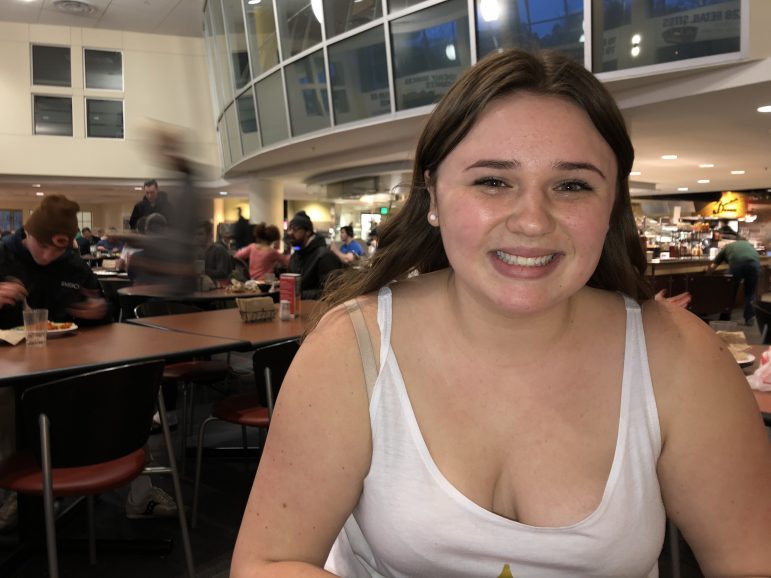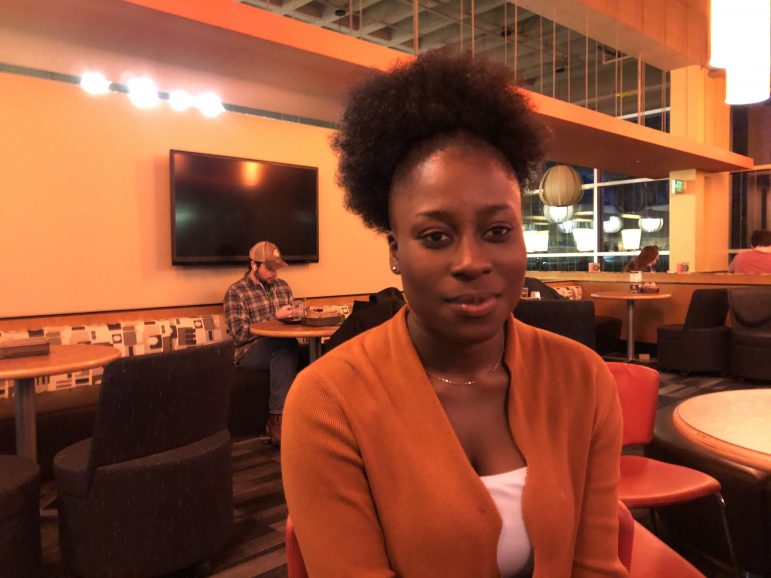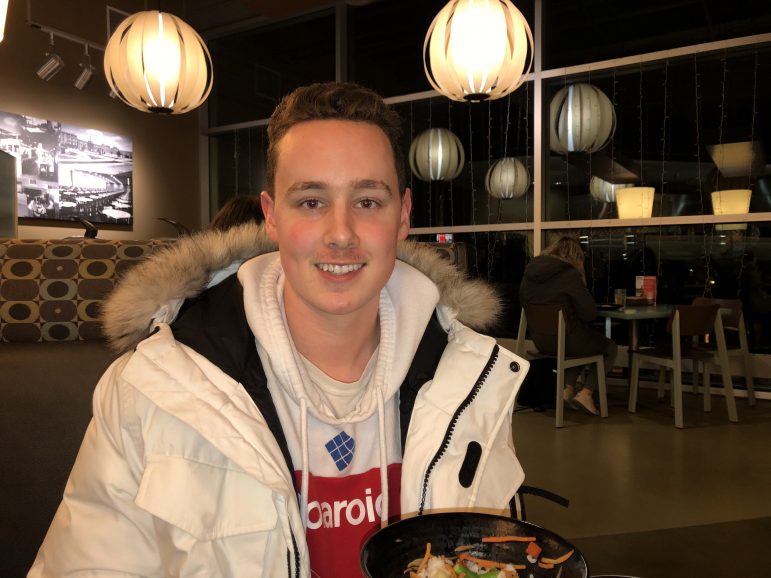Young voters will go to this year’s polls with information they’ve obtained through their experiences, their peers and maybe even their parents. Will they follow their parents, or rebel?
Christopher Ojeda, an assistant professor at the University of Tennessee, studies that. He did a study called “Accounting for the Child in the Transmission of Party Identification,” in 2015. He said household party affiliation can make it easier for young voters to decide. But affiliations might not be helpful in this Democratic primary.
“In a general election when there are two candidates … it’s kind of easy for kids to use the party identification to make decisions about who to support,” he said. “They know they’re Republican, they know they are Democrat, and maybe they believe that because they grew up in a household that was Democratic or Republican, so it’s easy to know who to support.”
He said, “In a primary election where all the candidates are of the same party, they can’t use party identification as a shortcut.”
This kind of strategy has a name and a reason for being used so often, said Ojeda.
“The term we use is shoristic, and so it’s just kind of a cognitive shortcut that sort of reveals something about politics without you having to be fully informed.”
This 2020 election is going to be different than years past because voters have so much more informations, said Ojeda.
“You might see the upcoming election that kids are a lot more independent in how they think about who they want to support,” he said. “Because they have access to more information about who’s running and their policies and news stories about the incumbent President Trump vs. the challenger — whoever that might be”
Sienna Sahajadack, an MSU sophomore, said her parents have made an impact on her vote.

Kaylie Connors
Sienna Sahajadack“I think most of the time when election seasons came around with my parents, they weren’t very big on making sure they got out and voted,” she said. “Seeing them not too active kind of pushed me towards not wanting to be like that.”
Her parents also had a little to do with her current political views, but she mostly gathered her information from her own life, said Sahajadack.
“I would say if they do have opinions, they lean more towards the right,” she said. “I think that a lot of my opinion that I’ve formed was like through class and through my classmates and that kind of thing but if anything, I think it kept me open to it, seeing that side and then at school seeing the other side, so it kept me more in the middle, I’d say.”
Betty Gueye, an MSU junior, said that even though her mother has adopted Democratic views, she leans more toward the middle.

Kaylie Connors
Betty Gueye“My mother, she seems to be Democratic. However, I’m more of like in the middle of the spectrum. I do believe a lot of the things that come with democracy,” she said. “But I also believe some things from the Republican side as well, like I believe that everyone should be working.”
Having been born in New York and then living in Senegal for 10 years has given her a different perspective than most Americans and may have something to do with her current political views, said Gueye
“I see a lot of things here that kind of pertain to the social economic background in Senegal as well. I guess you could say me believing in helping people in general, people who cannot afford to survive themselves,” she said. “So you could practically say that what I saw in Senegal or how I was brought up there definitely has something to do with you knowing my political views.”
Liam Grady, an MSU sophomore, said his parents definitely affect the way he leans.

Kaylie Connors
Liam Grady“I definitely think it affected my political beliefs. I definitely say I lean way more towards the way they taught me and raised me,” he said. “But there are definitely some things that I don’t agree with. I think it’s just a generational thing.”
Even though his parents have swayed some of his views, Grady said that he still takes different sides than his parents on a couple issues and looks more at the issues.
“I’m like a little bit to the right. I’m more of the kind of person who picks issues on what I believe in. I’m not just all right on everything. Like on abortion I might be a little different.”
There are a couple ways to go about your political views based on your household situation if you are relying on the information your parents are giving you while growing up, said Grady.
“It really just depends on the person. I think some people have resentment towards their parents and they’re just like ‘I don’t want to be like them at all so, I’m going to do the complete opposite of what they did,’” he said. “But then there’s some people that grew up in a good family environment who just kind of believe anything their parents tell them to believe because they’ve provided such a good life for them, so that’s all they know.”